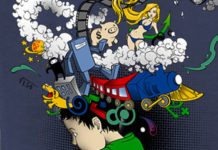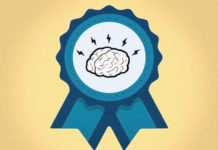The Mystery of Madness Throughout the Ages
The roots of modern psychiatry go back to the Age of Enlightenment when madness was reduced by scientists to an ‘object’ of mind — an object which could be studied, analysed, and as some of them claim, even understood. Not only does psychiatry deprive madness of its mystery, it also makes it extremely boring. But madness is never boring, and shouldn't be.
Researchers Highlight Pitfalls of Cognitive Assessment in Schools
Historical, current, and potential future complexities of cognitive assessment; a longstanding, controversial fixture in schools throughout the United States.
Dementia Screening Tools Often Misdiagnose Patients
A new study has found that the three most commonly-used dementia screening measures often misdiagnose patients.
Researchers Recommend Diagnosing Social Adversity Rather than Individual Disorders
Already-existing ICD codes provide a diagnostic alternative to biomedical models of health by contextualizing suffering within psychosocial conditions, yet these codes are underutilized.
Why We’re Establishing an Institute for Scientific Freedom
Scientific freedom and integrity are constantly under attack, particularly in healthcare, which is dominated by the drug industry and other economic interests. To help preserve honesty and integrity in science, the new Institute for Scientific Freedom will open on March 9 with an international meeting in Copenhagen.
The Minds of Men: A Stunning New Film About Covert Mind Control
The importance of a remarkable new film, The Minds of Men, was underscored by otherwise inexplicable recent events surrounding government support of ECT. Without any testing or opportunity for public response, effective December 26 the FDA has approved ECT for infliction upon people with “treatment-resistant depression.”
Researchers Call for Transparency About Limits of Psychiatric Knowledge
A new paper explores how the disputed nature of psychiatric knowledge influences public perceptions and debates within the field of mental health.
Collaboration with Consumers of Mental Health Services Improves Quality and Value of Research
A new study examines the benefits of collaborating with mental health consumers in research.
On Voice Hearing Simulations: Why They Should Be (Mostly) Banned
Voice hearing simulation exercises are designed to make participants feel frightened, overwhelmed, and unable to function. They don’t do anything to teach how people who hear voices work through that, the many effective strategies they use, or any of the benefits that some come to find in this way of being in the world.
Increasing Physical Activity in Schools May Improve Mental Health
A new article suggests integrating physical activity throughout the day may help to address the mental health of students.
Antipsychotics Associated with High Risk of Death in Children
A new study has found that children and adolescents taking a high dose of antipsychotics are almost twice as likely to die of any cause than children on other types of medications.
Claims That Long-term Antipsychotic Use Leads to Better Outcomes are Misleading, Researchers Argue
Researchers reveal the limitations and misleading interpretations of two recent studies that claim to demonstrate that long-term antipsychotic use leads to better outcomes.
The Failure to Acknowledge Suicidality
I feel like I have been failed by the healthcare system over and over again. I expected to be able to rely on therapists, psychologists, and doctors to properly evaluate, diagnosis, and treat me… especially when chronic suicidality is in the picture. Instead, I have a lengthy list of ways I have been failed. These failures have often added to my hopelessness.
Reclaiming Humanity at the Dawn of Posthumanism: Conversation with Darcia Narvaez
The postmodern zeitgeist of the past few decades encourages us to believe that we can endlessly reinvent ourselves untethered to our human biology. But the explosion of research on the microbiome reminds us that we are deeply embedded in an ecosystem that lives within us and around us, without which we cannot survive.
Antidepressant Dependence Discussed at the Seat of Welsh Government – Video
In parts of Wales in the UK, one in six adults takes antidepressants and support for anyone struggling with dependence or withdrawal issues is patchy and inconsistent. To help draw attention to these issues, an awareness day was arranged for the Welsh Government and here we provide video of the presentations made at the Senedd in Cardiff, Wales.
When International Psychiatric Aid Gets it Wrong: Street Children in Cairo
Study questions how international psychiatric treatment of street children in Cairo could be reinforcing their marginality and vulnerability.
Growing Evidence for the Link Between ADHD Diagnosis and Age at School Admission
Researchers detect a striking relationship between the month of school enrollment relative to peers and patterns of ADHD diagnoses in a large sample of elementary school students throughout the US.
What Do Twin Studies Prove About Genetic Influences on Psychiatric Disorders? Absolutely Nothing
Assessing the validity of psychiatric twin research is important because it relates to the question of whether the main causes of psychological distress and dysfunction are located inside of the human body and brain, as mainstream psychiatry claims, or outside of the body and brain, as many critics argue.
Researchers Ask, ‘Why Do Antidepressants Stop Working?’
An international group of researchers, including several with financial ties to manufacturers of antidepressants, explore possible explanations for why long-term users of antidepressants become chronically depressed.
Large Rigorous Study Debunks Popular Gene-Environment Theory of Depression
A large and rigorous meta-analysis fails to find support for the gene-environment interaction theory of depression.
The Meaningfulness of Anxiety
Anxiety can be a clarion call from our better self, a nagging inner tension that will persist until real-life changes are made that attend to deeper needs. When anxiety is reduced to a symptom to be medicated away, or an aberrant emotion based on cognitive distortions in need of correction, the all-important representational value of that anxiety can be lost.
My Mother Accidentally Took My Medication
Although I have usually been the one suffering from side effects, with others watching on, the roles were reversed in this incident. Seeing my mother impaired caused me heartache, and I am now rethinking my treatment regimen. Is this stuff good for me for the long term? Is this the only stuff that can help me, or is there an alternative?
Belongingness Can Protect Against Impact of Trauma, Study Suggests
A new study explores feelings of belongingness as a protective factor for childhood trauma and adult mental health outcomes.
Treated Infections in Childhood Linked with Later Mental Health Service Use
Severe infections requiring hospitalizations increased the risk of hospital contacts due to mental disorders by 84% and the risk of psychotropic medication use by 42%.
What’s “Grand” About Electroshock and Transcranial Magnetic Stimulation?
The December 4 "grand rounds" at the Oregon Health and Science University consisted of a presentation on what they call "Interventional Psychiatry"—an interesting euphemism for Electroshock, Transcranial Magnetic Stimulation (TMS), and the comeback street drug, Ketamine.

































